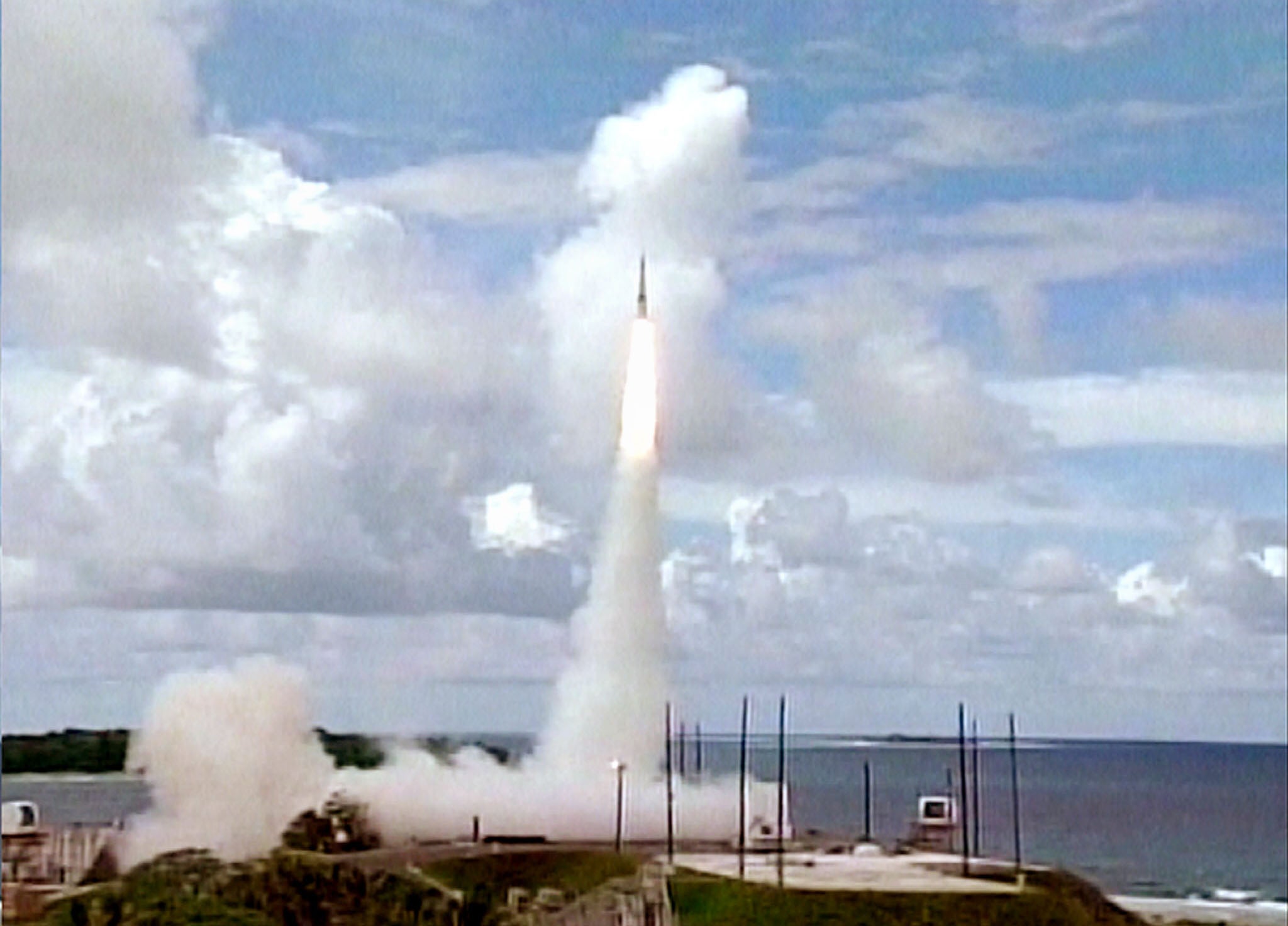US tests interceptor designed to strike down incoming ballistic missiles amid growing North Korean threats
The Pentagon has not successfully tested an interceptor missile since 2014

Your support helps us to tell the story
From reproductive rights to climate change to Big Tech, The Independent is on the ground when the story is developing. Whether it's investigating the financials of Elon Musk's pro-Trump PAC or producing our latest documentary, 'The A Word', which shines a light on the American women fighting for reproductive rights, we know how important it is to parse out the facts from the messaging.
At such a critical moment in US history, we need reporters on the ground. Your donation allows us to keep sending journalists to speak to both sides of the story.
The Independent is trusted by Americans across the entire political spectrum. And unlike many other quality news outlets, we choose not to lock Americans out of our reporting and analysis with paywalls. We believe quality journalism should be available to everyone, paid for by those who can afford it.
Your support makes all the difference.The US has successfully tested a long-range weapon designed to shoot down intercontinental ballistic missiles (ICBM) for the first time, the military reports.
The interceptor missile – frequently described as a “high-speed effort to hit a bullet with another bullet” – was launched from Vandenberg Air Force Base in California. It met an ICBM fired by the US from the Marshall Islands somewhere over the Pacific Ocean.
"The intercept of a complex, threat-representative ICBM target is an incredible accomplishment...a critical milestone for this program," said Vice Admiral Jim Syring, the director of the Missile Defence Agency.
Navy Captain Jeff Davis told reporters this test would be used to evaluate the system's performance against ICBMs. The military has been testing the interceptor system since 1999, but this is the first time it was tested on an intercontinental missile.
The interceptors are tested every two years, but the Department of Defence says only half of the tests have been successful. The last successful test was carried out in June 2014 – the first success since 2008.
A recent Department of Defence report actually criticised tests of the interceptor, saying they "demonstrate a limited capability to defend the US homeland”.
The US currently possesses only a single long-range, ground-based interceptor.
The recent test comes just days after North Korea launched a short-range ballistic missile, which flew about 280 miles and landed in the Sea of Japan.
A US official told ABC that this test had been planned for years, and was not a response to North Korea’s actions.
The Pentagon has previously denied that the interceptor programme is intended for North Korean threats exclusively. Defence Intelligence Agency Director Vincent Stewart, however, delivered a stern warning about the country’s capabilities to a Senate hearing last week.
"If left on its current trajectory the regime will ultimately succeed in fielding a nuclear-armed missile capable of threatening the United States homeland," Lieutenant General Stewart said.
The director said it is “nearly impossible” to predict when North Korea’s ICBMs will be operational, but other experts have set that date at around 2025.
Kim Jong-un's government has conducted nine missiles tests this year, but despite showing weapons development, none have been intercontinental in reach.
Join our commenting forum
Join thought-provoking conversations, follow other Independent readers and see their replies
Comments